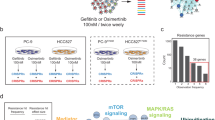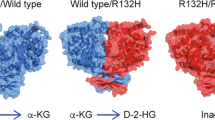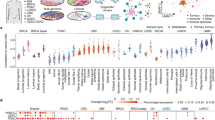Abstract
Glioblastoma multiforme (GBM) are intracranial tumors of the central nervous system and the most lethal among solid tumors. Current therapy is palliative and is limited to surgical resection followed by radiation therapy and temozolomide treatment. Aberrant WNT pathway activation mediates not only cancer cell proliferation but also promotes radiation and chemotherapeutic resistance. WNT antagonists such as the secreted frizzled-related protein (sFRP) family have an ability to sensitize glioma cells to chemotherapeutics, decrease proliferation rate and induce apoptosis. During tumor development, sFRP genes (1–5) are frequently hypermethylated, causing transcriptional silencing. We investigated a possible involvement of methylation-mediated silencing of the sFRP gene family in human GBM using four human glioblastoma cell lines (U87, U138, A172 and LN18). To induce demethylation of the DNA, we inhibited DNA methyltransferases through treatment with 5-azacytidine. Genomic DNA, RNA and total protein were isolated from GBM cells before and after treatment. We utilized bisulfite modification of genomic DNA to examine the methylation status of the respective sFRP promoter regions. Pharmacological demethylation of the GBM cell lines demonstrated a loss of methylation in sFRP promoter regions, as well as an increase in sFRP gene-specific mRNA abundance. Western blot analysis demonstrated an increased protein expression of sFRP-4 and increased levels of phosphorylated-β-catenin. These data indicate an important role of methylation-induced gene silencing of the sFRP gene family in human GBM.
This is a preview of subscription content, access via your institution
Access options
Subscribe to this journal
Receive 12 print issues and online access
$259.00 per year
only $21.58 per issue
Buy this article
- Purchase on Springer Link
- Instant access to full article PDF
Prices may be subject to local taxes which are calculated during checkout




Similar content being viewed by others
References
Sanai N, Alvarez-Buylla A, Berger MS . Neural stem cells and the origin of gliomas. N Engl J Med 2005; 353: 811–822.
Kreth FW, Warnke PC, Scheremet R, Ostertag CB . Surgical resection and radiation therapy versus biopsy and radiation therapy in the treatment of glioblastoma multiforme. J Neurosurg 1993; 78: 762–766.
Buckner JC . Factors influencing survival in high-grade gliomas. Semin Oncol 2003; 30: 10–14.
Baba AI, Câtoi C . Tumor Cell Morphology. Comparative Oncology. The Publishing House of the Romanian Academy, 2007.
Dale TC . Signal transduction by the Wnt family of ligands. Biochem J 1998; 329 (Pt 2): 209–223.
Wodarz A, Nusse R . Mechanisms of Wnt signaling in development. Annu Rev Cell Dev Biol 1998; 14: 59–88.
Aberle H, Bauer A, Stappert J, Kispert A, Kemler R . Beta-Catenin Is a Target for the ubiquitin-proteasome pathway. EMBO J 1997; 16: 3797–3804.
Clevers H . Wnt/beta-catenin signaling in development and disease. Cell 2006; 127: 469–480.
Rattner A, Hsieh JC, Smallwood PM, Gilbert DJ, Copeland NG, Jenkins NA et al. A family of secreted proteins contains homology to the cysteine-rich ligand-binding domain of frizzled receptors. Proc Natl Acad Sci USA 1997; 94: 2859–2863.
Warrier S, Balu SK, Kumar AP, Millward M, Dharmarajan A . Wnt antagonist, secreted frizzled-related protein 4 (sFRP4), increases chemotherapeutic response of glioma stem-like cells. Oncol Res 2014; 21: 93–102.
Suzuki H, Gabrielson E, Chen W, Anbazhagan R, van Engeland M, Weijenberg MP et al. A genomic screen for genes upregulated by demethylation and histone deacetylase inhibition in human colorectal cancer. Nat Genet 2002; 31: 141–149.
Suzuki H, Watkins DN, Jair K-W, Schuebel KE, Markowitz SD, Chen WD et al. Epigenetic inactivation of SFRP genes allows constitutive WNT signaling in colorectal cancer. Nat Genet 2004; 36: 417–422.
Phillips T . The role of methylation in gene expression how and where are genes methylated? Nat Educ 2008; 1: 116.
Saran U, Arfuso F, Zeps N, Dharmarajan A . Secreted frizzled-related protein 4 expression is positively associated with responsiveness to cisplatin of ovarian cancer cell lines in vitro and with lower tumour grade in mucinous ovarian cancers. BMC Cell Biol 2012; 13: 25.
To KKW, Zhan Z, Bates SE . Aberrant promoter methylation of the ABCG2 gene in renal carcinoma. Mol Cell Biol 2006; 26: 8572–8585.
Baylin SB, Herman JG . DNA hypermethylation in tumorigenesis: epigenetics joins genetics. Trends Genet 2000; 16: 168–174.
Baylin SB, Esteller M, Rountree MR, Bachman KE, Schuebel K, Herman JG . Aberrant patterns of DNA methylation, chromatin formation and gene expression in cancer. Hum Mol Genet 2001; 10: 687–692.
Christman JK, Mendelsohn N, Herzog D, Schneiderman N . Effect of 5-azacytidine on differentiation and DNA methylation in human promyelocytic leukemia cells (HL-60). Cancer Res 1983; 43: 763–769.
Oue N, Shigeishi H, Kuniyasu H, Yokozaki H, Kuraoka K, Ito R et al. Promoter hypermethylation of MGMT is associated with protein loss in gastric carcinoma. Int J Cancer 2001; 93: 805–809.
Sharma S, Salehi F, Scheithauer BW, Rotondo F, Syro LV, Kovacs K . Role of MGMT in tumor development, progression, diagnosis, treatment and prognosis. Anticancer Res 2009; 29: 3759–3768.
Agrawal A, Murphy RF, Agrawal DK . DNA methylation in breast and colorectal cancers. Mod Pathol 2007; 20: 711–721.
Kalari S, Pfeifer GP . Identification of driver and passenger DNA methylation in cancer by epigenomic analysis. Adv Genet 2010; 70: 277–308.
He T . Identification of c-MYC as a Target of the APC Pathway. Science (80-) 1998; 281: 1509–1512.
Hsieh J-C, Rattner A, Smallwood PM, Nathans J . Biochemical characterization of Wnt-Frizzled interactions using a soluble, biologically active vertebrate Wnt protein. Proc Natl Acad Sci USA 1999; 96: 3546–3551.
Finch PW, He X, Kelley MJ, Uren A, Schaudies RP, Popescu NC et al. Purification and molecular cloning of a secreted, Frizzled-related antagonist of Wnt action. Proc Natl Acad Sci USA 1997; 94: 6770–6775.
Nusse R, Varmus HE . Wnt genes. Cell 1992; 69: 1073–1087.
Polakis P . Wnt signaling in cancer. Cold Spring Harb Perspect Biol 2000; 4: 1837–1851.
Lee AY, He B, You L, Dadfarmay S, Xu Z, Mazieres J et al. Expression of the secreted frizzled-related protein gene family is downregulated in human mesothelioma. Oncogene 2004; 23: 6672–6676.
Marsit CJ, Karagas MR, Andrew A, Liu M, Danaee H, Schned AR et al. Epigenetic inactivation of SFRP genes and TP53 alteration act jointly as markers of invasive bladder cancer. Cancer Res 2005; 65: 7081–7085.
Götze S, Wolter M, Reifenberger G, Müller O, Sievers S . Frequent promoter hypermethylation of Wnt pathway inhibitor genes in malignant astrocytic gliomas. Int J Cancer 2010; 126: 2584–2593.
He B, Lee AY, Dadfarmay S, You L, Xu Z, Reguart N et al. Secreted frizzled-related protein 4 is silenced by hypermethylation and induces apoptosis in beta-catenin-deficient human mesothelioma cells. Cancer Res 2005; 65: 743–748.
Cheng YY, Yu J, Wong YP, Man EPS, To KF, Jin VX et al. Frequent epigenetic inactivation of secreted frizzled-related protein 2 (SFRP2) by promoter methylation in human gastric cancer. Br J Cancer 2007; 97: 895–901.
Dahl E, Wiesmann F, Woenckhaus M, Stoehr R, Wild PJ, Veeck J et al. Frequent loss of SFRP1 expression in multiple human solid tumours: association with aberrant promoter methylation in renal cell carcinoma. Oncogene 2007, 26: 5680–5691.
Veeck J, Noetzel E, Bektas N, Jost E, Hartmann A, Knüchel R et al. Promoter hypermethylation of the SFRP2 gene is a high-frequent alteration and tumor-specific epigenetic marker in human breast cancer. Mol Cancer 2008; 7: 83.
Tetsu O, McCormick F . Beta-catenin regulates expression of cyclin D1 in colon carcinoma cells. Nature 1999; 398: 422–426.
McRonald FE, Morris MR, Gentle D, Winchester L, Baban D, Ragoussis J et al. CpG methylation profiling in VHL related and VHL unrelated renal cell carcinoma. Mol Cancer 2009; 8: 31.
Ekström EJ, Sherwood V, Andersson T . Methylation and loss of Secreted Frizzled-Related Protein 3 enhances melanoma cell migration and invasion. PLoS One 2011; 6: e18674.
Lin Y-W, Shih Y-L, Lien G-S, Suk F-M, Hsieh C-B, Yan M-D . Promoter methylation of SFRP3 is frequent in hepatocellular carcinoma. Dis Markers 2014; 2014: 351863.
Qi J, Zhu Y-Q, Luo J, Tao W-H, Zhang J-M . Hypermethylation and regulation of expression of secreted frizzled-related protein genes in colorectal tumor. Zhonghua Zhong Liu Za Zhi 2007; 29: 842–845.
Zou H, Molina JR, Harrington JJ, Osborn NK, Klatt KK, Romero Y et al. Aberrant methylation of secreted frizzled-related protein genes in esophageal adenocarcinoma and Barrett ’ s esophagus. Int J Cancer 2005; 591: 584–591.
Wang H, Wang X, Hu R, Yang W, Liao A, Zhao C et al. Methylation of SFRP5 is related to multidrug resistance in leukemia cells. Cancer Gene Ther 2014; 21: 83–89.
Su H-Y, Lai H-C, Lin Y-W, Liu C-Y, Chen C-K, Chou Y-C et al. Epigenetic silencing of SFRP5 is related to malignant phenotype and chemoresistance of ovarian cancer through Wnt signaling pathway. Int J Cancer 2010; 127: 555–567.
Valencia A, Román-Gómez J, Cervera J, Such E, Barragán E, Bolufer P et al. Wnt signaling pathway is epigenetically regulated by methylation of Wnt antagonists in acute myeloid leukemia. Leukemia 2009; 23: 1658–1666.
Acknowledgements
AD thanks Curtin University Commercialization Advisory Board, Curtin University School of Biomedical Sciences Strategic Research Funds and Faculty of Health Sciences for their research support. PN and DG thank Curtin University School of Biomedical Sciences and Faculty of Health Sciences for their research Support.
Author information
Authors and Affiliations
Corresponding author
Ethics declarations
Competing interests
The authors declare no conflict of interest.
Rights and permissions
About this article
Cite this article
Schiefer, L., Visweswaran, M., Perumal, V. et al. Epigenetic regulation of the secreted frizzled-related protein family in human glioblastoma multiforme. Cancer Gene Ther 21, 297–303 (2014). https://doi.org/10.1038/cgt.2014.30
Received:
Accepted:
Published:
Issue Date:
DOI: https://doi.org/10.1038/cgt.2014.30
This article is cited by
-
Altered cytoskeletal status in the transition from proneural to mesenchymal glioblastoma subtypes
Scientific Reports (2022)
-
TCF3 Induces DNMT1 Expression to Regulate Wnt Signaling Pathway in Glioma
Neurotoxicity Research (2022)
-
Morphology-oriented epigenetic research
Histochemistry and Cell Biology (2018)
-
Epigenetic reprogramming converts human Wharton’s jelly mesenchymal stem cells into functional cardiomyocytes by differential regulation of Wnt mediators
Stem Cell Research & Therapy (2017)
-
WNT signaling in glioblastoma and therapeutic opportunities
Laboratory Investigation (2016)



